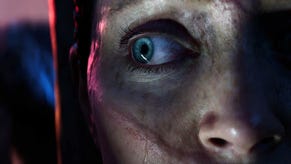Nintendo's new boss faces the most pivotal year in the company's history
Tatsumi Kimishima: CEO of quality?
One of the first things that Tatsumi Kimishima, the newly-appointed CEO of Nintendo, said in his new role is that "it's wrong to lead a gaming company on numbers alone." This is the kind of thing all Nintendo fans want to hear, of course, and yet here the sentiment seems curiously out-of-place. For Mr Kimishima, the future will be numbers and little else.
The challenges Nintendo face are enormous, multi-faceted, and immediate. The company is being squeezed out of its traditional markets as the games industry changes, and alongside this has made big mistakes. Wii U was unable to capitalise on Wii's mainstream success, and may (undeservedly) end up as the company's lowest-selling console. The 3DS continues to sell well, and Nintendo more or less now own the dedicated handheld market, but the ubiquity of mobile - and the sheer money to be made there - makes it look like chickenfeed.
Then the cruellest blow of all, the unexpected death of company president Satoru Iwata in July this year. Nintendo is a company that, throughout its history, has known tragedy - but this loss cannot be understated. It served to toughen Nintendo's internal commitment to Iwata's ideas, and this is another factor behind Kimishima's appointment.
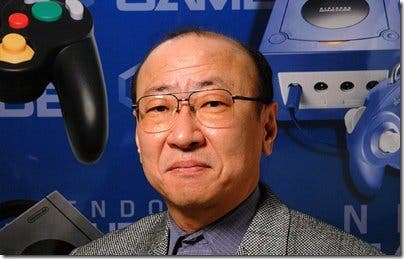
Tatsumi Kimishima is the fifth man to lead Nintendo in 125 years. Born in Tokyo in 1950, he studied law at Hitotsubashi University before spending just under three decades in the Japanese banking sector. His first connection with gaming is on being appointed a representative director of the Pokemon Company in 2000. Two years later he was appointed director of Nintendo of America, a role held to this day.
Kimishima has been appointed Nintendo's managing director and representative director, so he runs the company and reports to shareholders every three months. But the press release also lists other responsibilities: he is general manager of the corporate analysis and administration division, in charge of HR and, most winningly, the general manager of general affairs.
Such a financial background is obviously a marked contrast to the design and programming career of Satoru Iwata. But Iwata himself was a change from Hiroshi Yamauchi, who had no personal interest in games yet established Nintendo as a leader in the industry. There is no 'right' background for such a singular role as Nintendo CEO, but in this case we do have context for the choice.
The words being bandied around by analysts are solid, safe and strong. For which read: Kimishima's an appointment that has internal support and won't rock the boat. Even those who have a romantic vision of Nintendo should be able to agree that these are desirable qualities, because Kimishima takes charge of Nintendo at a time when their first mobile games are launching, and the design and features of NX are already finalised.
We may know nothing about NX beyond rumours that Nintendo is targeting a 2016 release, which suggests the machine's internals already exist and software is in advanced development. A Dragon Quest title is confirmed, telling us that select third-parties either have devkits or know the specs. Serious first-party support for Wii U seems to be winding down, outside of the Zelda swansong which - if I was a betting man - may well turn out to pull double duty as a NX launch title (as with Twilight Princess and Gamecube/Wii).
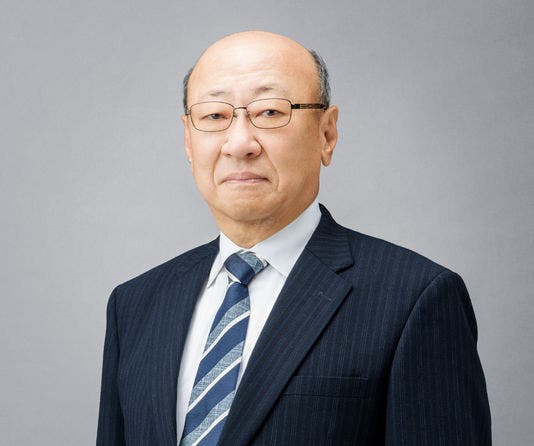
The point is that NX exists behind closed doors - and, regardless of who's in charge, won't be changing much before we see it. The machine is another expression of Satoru Iwata's hardware philosophy, announced by him as a "brand-new concept" in March this year. In one of his last interviews, Iwata elaborated: "If you only expand on existing hardware, it's dull. In some shape or form we're always thinking about how we want to surprise players, as well as our desire to change each person's video gaming life."
One thing NX will definitely involve is a comprehensive online membership system - that works across Nintendo platforms and third-party devices like PCs and phones. Iwata announced NX when he did to emphasise that Nintendo's move into the mobile market did not represent it leaving the hardware business. But the most relevant side of Nintendo's agreement with mobile giant DeNA, for traditional players, is that the latter will take responsibility for network services. Online has always been an area where Nintendo's solutions have not quite matched consumer expectations - whereas DeNA, as enormously successful mobile specialists, make nothing but 'connected' games.
Kimishima's role is to launch NX, manage Nintendo's early moves in the mobile market, and keep the company and its partners on the same course. After the appointment he granted Nikkei an interview, parts of which were translated by consultant and CEO of Kantan Games Dr Serkan Toto. "Kimishima says Iwata didn't give him instructions to run the company. He says he is elected for one year and doesn't know what comes next. Says he is not against company outsiders to lead Nintendo one day."
Among the many other nuggets - Kimishima apparently predicted the Wii U's failure - this makes clear Nintendo's future planning. Kimishima will be in charge for an initial period of a year, and the interview ends with his saying that "one task will be to develop the next group leadership structure for Nintendo."
We can already see this taking shape in the appointment of Shigeru Miyamoto and Genyo Takeda to the newly-created roles of, respectively, Creative Fellow and Technology Fellow. As well as such illustrious wingmen for Kimishima, Shinya Takahashi was promoted to general manager of Nintendo's entertainment division (EPD) - the kind of promotion that, along with Takahashi's exceptional list of producer credits, makes you think we'll be seeing a lot more of him.
This all adds up to a more decentralised management structure, one that ensures the creative core of the company is insulated from the business of numbers. This kind of model is futureproof in a way that the 'great leader' structure of old Nintendo is not, and it only makes my throat catch a little to think that Iwata planned it this way.
The Nikkei also suggests that Iwata himself was not convinced Kimishima was suitable for the role, believing a younger candidate better-placed to move the company forward. Here we move into the realm of rumour and speculation, which exists largely because Iwata's death was - despite the public knowledge of his illness - so sudden.
Kimishima's temporary appointment, however, does raise the question of who comes next. Whatever structure Nintendo may operate under in the future, it still needs visionary creators and leaders. Unverified scuttlebutt suggests that the younger candidate Iwata had in mind to succeed him was an outsider like Level-5 president Akihiro Hino, who would work alongside him for a time before taking over. As a programmer first and company president second, Hino has personal similarities to Iwata (something the latter picked up on in an 'Iwata Asks'), and since founding Level-5 in 1998 has made it into one of Japan's top developer/publishers - recently saying his goal was to transform it into something like Disney.
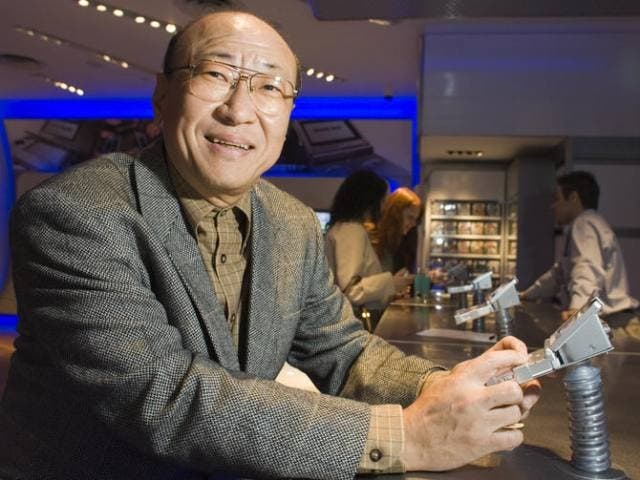
Hino may make for a plausible candidate but, whether he is Nintendo's future or just a red herring, what is clear is that Iwata's death was too soon in every sense. Iwata's succession plan may still be the roadmap, and Nintendo is internally committed to his strategy in a wider sense, but he is no longer here to deliver it.
Kimishima returned to Japan, after a lengthy spell at NOA, around a year before Iwata's death, and would have been on the inside of any succession planning. Another Nikkei quote is that there will be no changes to Iwata's "basic strategy."
In this light Kimishima's role may seem to take on odd overtones, but things are simple. The NX and the ongoing entry into mobile represent both Nintendo's immediate future and possible long-term futures. The company must deliver top-quality software and hardware, which is already in development, to these two different markets - and then sell it. If it doesn't do the numbers, NX will be Old Nintendo's last hurrah.
This, then, is something of an old story too: the understudy tasked with delivering another man's dream. Tatsumi Kimishima is not expected to be a visionary in the mould of Yamauchi or Iwata, and yet fate has aligned his time with the most high-stakes gamble Nintendo has ever made - and in a game where the die is already cast. I would wish Mr Kimishima luck but, as he already knows, that is best left to heaven.
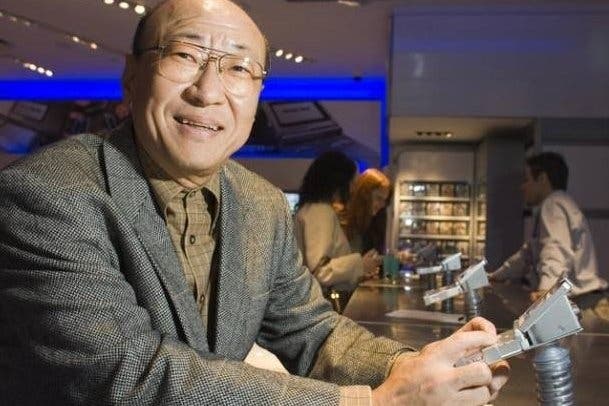







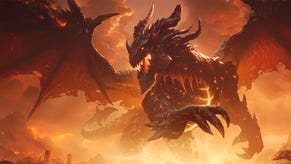
.png?width=291&height=164&fit=crop&quality=80&format=jpg&auto=webp)
